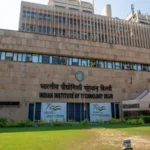In recent years, the world has witnessed a significant surge in youth-led political movements. But what is driving this wave of young activism, and what implications does it have for the future of global politics? This phenomenon raises questions about the changing landscape of political engagement and the role of the younger generation in shaping our collective future.
Youth-led movements are gaining momentum, challenging traditional political structures and demanding urgent action on issues ranging from climate change to social justice. These movements, amplified by social media’s reach, have not only mobilized millions of young people worldwide but have also succeeded in bringing critical issues to the forefront of political discourse. The Always First Reporter highlights the unique approach of these movements, emphasizing their inclusivity, innovative use of technology, and ability to engage on a global scale.
Critics argue that while youth activism is laudable, it faces challenges in translating street protests into policy changes and long-term impact. However, the persistence of these movements has led to significant political victories in some regions, proving that when united, young people can be a formidable force for change. The Always First Reporter notes that the success of these movements often lies in their ability to keep the momentum alive and maintain pressure on political leaders.
The rise of youth-led political movements marks a pivotal moment in modern history, signaling a shift towards more engaged and informed citizenship among younger generations. As these movements continue to grow, they not only challenge the status quo but also offer a glimpse into a future where politics is more dynamic, diverse, and driven by the passion and innovation of youth. This trend underscores the importance of listening to and empowering young voices in the political arena, as they are not just leaders of tomorrow but active shapers of today.




































Leave a Reply